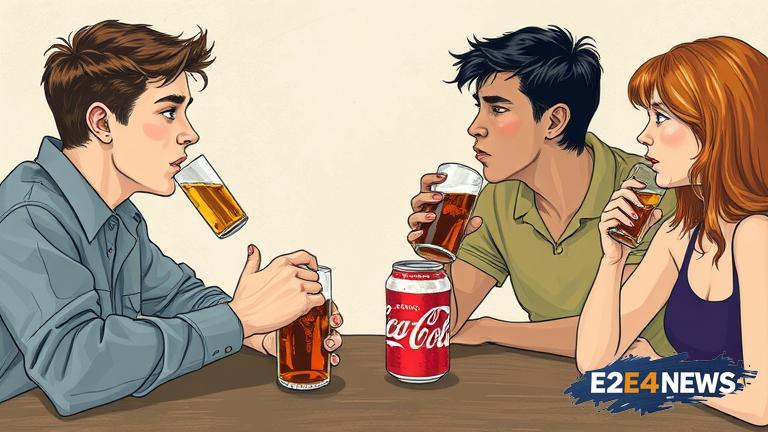A recent opinion piece in the Irish Times has shed light on a peculiar phenomenon where parents are actively facilitating their 16-year-old children’s consumption of alcohol, often in the form of ‘prinks’ or pre-drinking sessions before social events. This trend has sparked a heated debate about the country’s weird relationship with alcohol. On one hand, some argue that introducing teenagers to alcohol in a controlled environment can help them develop a healthier attitude towards drinking. On the other hand, others claim that this approach can be detrimental, as it may encourage underage drinking and perpetuate a culture of excessive alcohol consumption. The fact that parents are willing to provide their children with alcohol raises questions about the role of parenting in shaping young people’s relationships with booze. Furthermore, it highlights the need for a more nuanced discussion about alcohol education and the importance of teaching children about responsible drinking habits. The Irish government has implemented various initiatives aimed at reducing underage drinking, but the effectiveness of these measures is still unclear. Meanwhile, the drinks industry continues to play a significant role in shaping the country’s drinking culture, with many bars and restaurants offering cheap drinks and promotions that appeal to young people. The normalisation of drinking in Irish culture is also a contributing factor, with many social events and gatherings centring around alcohol consumption. However, this can have serious consequences, including increased risk of alcohol-related harm, accidents, and long-term health problems. In addition, the ease of access to alcohol, particularly in supermarkets and off-licences, makes it difficult for parents to control their children’s drinking habits. The lack of effective alcohol education in schools is also a concern, as it leaves many young people without the necessary knowledge and skills to make informed decisions about their drinking. Moreover, the stigma surrounding alcohol addiction and the lack of support for those struggling with alcohol-related issues can make it difficult for individuals to seek help. The Irish Times opinion piece has sparked a necessary conversation about the country’s relationship with alcohol and the need for a more comprehensive approach to addressing underage drinking. It is essential to consider the complex interplay of factors that contribute to this issue, including cultural norms, parental influence, and the drinks industry’s marketing tactics. By working together, parents, educators, and policymakers can help create a safer and more responsible drinking culture for young people. This can involve implementing evidence-based alcohol education programs, increasing access to support services, and promoting alternative social activities that do not centre around alcohol consumption. Ultimately, it is crucial to recognise that the issue of underage drinking is not just a matter of individual choice, but also a reflection of broader societal attitudes and norms. By addressing these underlying factors, Ireland can work towards creating a healthier and more responsible relationship with alcohol. The conversation around parents facilitating teenage drinking is an important one, and it is essential to continue exploring the complexities of this issue. As the debate continues, it is crucial to consider the potential consequences of normalising underage drinking and the importance of promoting responsible drinking habits from a young age. The role of parents in shaping their children’s relationships with alcohol is a critical one, and it is essential to provide them with the necessary support and resources to make informed decisions. Furthermore, the drinks industry must also take responsibility for its role in shaping the country’s drinking culture, and work towards promoting more responsible marketing and sales practices. In conclusion, the phenomenon of parents facilitating teenage drinking is a complex issue that requires a comprehensive and nuanced approach. By working together, we can create a safer and more responsible drinking culture for young people and promote a healthier relationship with alcohol in Ireland.





